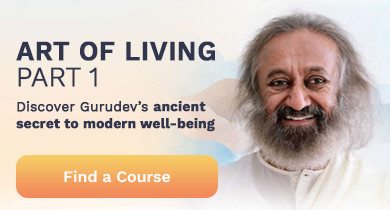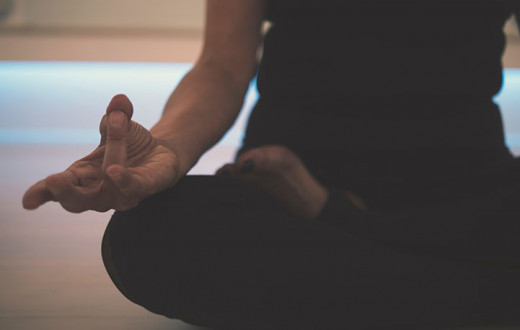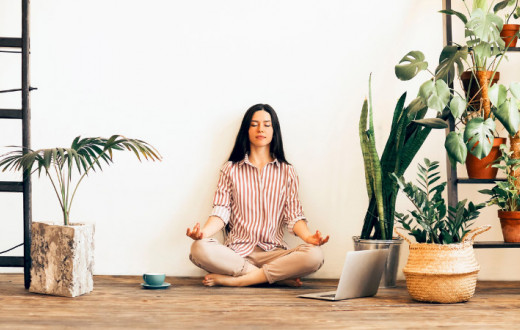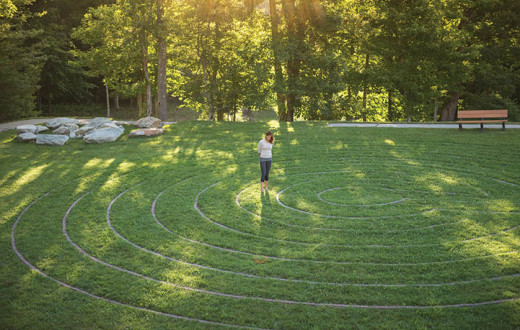By Denise Everheart
A good night’s sleep seems more elusive than ever! Here’s how to use meditation for better sleep every night and stop being so tired all the time!
Are you tired of being tired?
It has been estimated that 50 to 70 million people in the U.S. have sleep problems and these are pre-pandemic statistics!! Mind-boggling, isn’t it? Yet sadly it isn’t really surprising.
We need help and we needed it yesterday.
Meditation is not only an effective tool for better sleep it also doesn’t involve medicating ourselves with pills and alcohol. You won’t find a better all-natural remedy than meditation for better sleep. Read on to learn more…
How important is sleep?
Sleep is as vital as regular exercise and eating a balanced diet, yet you would most likely feel the effects of not enough quality sleep before you notice the effects of not exercising enough or eating well. Just one sleepless night and our whole day is askew. But what happens when a sleepless night turns into a pattern of insomnia? Here are some of the effects you might experience:
Memory issues
Trouble thinking clearly
Mood changes
Weakened immune system
High blood pressure
Weight gain
Risk of heart disease
And if you are unable to sleep for longer blocks of time it can lead to sleep deprivation psychosis. Scary stuff!
What is the difference between sleep and meditation?
Have you ever wondered if you were meditating when you were sleeping? No, you haven’t wondered! Why not? Because with sleep there is dullness and non-awareness, yes? Yet sometimes after deep meditation, we wonder...Was I sleeping? Funny, isn’t it? Even though most deep meditation (a state of deep rest) is an experience accompanied by awareness and even alertness, we question the experience because the deep rest is so significant and can sometimes feel like a dream.
Although sleep and meditation do have some shared benefits, one can not be a substitute for the other. We all must sleep. And we all need to meditate if we want to be the best versions of ourselves, healthy and happy!
Note: For those who have found themselves snoring in meditation, you definitely fell asleep! And that’s ok! It is just an indication that you did not get a good night’s sleep and your body needed it.
How can meditation help with sleep?
Meditation not only can help you recover from issues arising from a lack of sleep, but it can also make it easier to fall asleep. One of the main causes of sleeplessness is STRESS! And one of the main benefits of meditation is releasing stress!
Depending on which meditation technique you use there could also be the added benefit of resetting or balancing your internal rhythms which in turn makes it easier to fall asleep on time. Being in harmony with the natural rhythms in nature is an added benefit of the breath-based meditation technique known as Sudarshan Kriya (SKY Breath Meditation).
Which kinds of meditations help with sleep issues?
1. Guided meditation has become a common go-to for anyone with sleep issues. It’s quick. It’s easy. And they help in the short term. You can access guided meditations online and in a meditation app (Apple or Google). Guided meditations are an excellent first step for meditation newbies. Here’s a guided sleep meditation led by Art of Living founder, Gurudev Sri Sri Ravi Shankar.
2. Body scan meditation is very similar to a guided meditation but most often done while lying flat on your back. Although a body scan meditation is something you can do on your own, it is more effective when guided by another so that all you have to do is listen to the words being spoken and melt into deep relaxation.
Another name for a body scan meditation is Yoga Nidra. Yoga Nidra is also referred to as Yogic Sleep due to the deep rest experienced while still awake.
What makes Yoga Nidra unique is that it can be used to recover from a sleepless night, a power nap during an afternoon slump, or at the end of any series of yoga postures. It can even be used in bed at night as a tool for falling asleep, though that is not its original intended purpose.
Here’s a wonderful Yoga Nidra session led by meditation master, Gurudev Sri Sri Ravi Shankar that I’m sure you will enjoy!
3. Mindfulness meditation is a mind-calming practice that focuses on breathing and the awareness of the present moment. In April of 2015, JAMA published a study comparing two groups over 6 weeks. The first group was taught mindfulness meditation techniques and the second group spent the same amount of time learning ways to improve sleep habits. At the end of the study, the mindfulness group had less insomnia, fatigue, and depression.
Although mindfulness has grown in popularity it can be challenging to control the mind in an effort to reduce thoughts and basically self-regulate stress. And it can take a long time to master. Some researchers believe the benefits of mindfulness are related to its ability to dial down the body's response to stress. One study cited on the National Center for Biotechnology Information (NCBI) website goes so far as to say that, “the evidence for even the most ‘well-founded’ benefits of mindfulness is not consistent or conclusive”.
So what about old stresses? One drawback to mindfulness methods is that they do not typically address or remedy the issue of accumulated past and deep-rooted stresses and toxins, and how to eliminate those from our nervous system.
Mindfulness can be likened to sitting, calmly, in a dusty, dirty home. You might be calm, less stressed in that moment but your house is still dirty. If you do not attend to cleaning your home, dust and filth continue to accumulate. Maybe you can tolerate living, breathing, sleeping, and being in that environment for some time but at some point dust, mold, and grime not only become intolerable, but these things can also affect your overall wellness. The same is true when it comes to our own minds. Unchecked, you might even develop a serious illness beyond just fatigue and sleep issues if those older stresses are not gotten rid of. Don’t you want a deep cleaning for your brain? I know I do!
4. Mantra-based meditation is another popular meditation practice in the U.S. in recent years. Mantras in the original sense, are ancient Sanskrit sounds that are not spoken aloud and have a profound vibrational effect on your mind and body. These mantras serve to settle the mind down, giving profound deep rest, and allowing stresses to be released from the nervous system and also many other deep-rooted impressions from our whole lifetime. This makes it one of the most unique and powerful meditation techniques. A mantra-based meditation practiced over time has benefits that also increase the longer you practice.
Mantras that have been reimagined or modernized to include affirmations or something other than time-tested ancient mantras may give a relaxation response but lack the vibrational power of ancient Sanskrit mantras and may not yield long-term benefits.
Sahaj Samadhi Meditation is a mantra-based technique that is easy to learn, effortless to practice, and gives a wide range of benefits including increased energy and mental clarity. In just a few hours of training, you become proficient in a meditation practice that gives you rest that is twice as deep as sleep. In fact, practitioners often report needing less sleep overall. Just 20 minutes twice a day can unlock tremendous energy and give balance to your life.
5. Breath-based meditation is more than just a breathing exercise. Harnessing the natural power of your breath for deep meditation makes it easy for anyone to reach deeper states of relaxation and reap many more benefits than simply listening to a sleep story before bed. In fact, it is with the breath that we can release accumulated stresses, trauma, and built-up toxins. Keep reading to learn how SKY Breath Meditation can give you improved sleep.
When is the best time to meditate for better sleep?
Finding the best time to meditate for better sleep will depend on which technique you use. Most short-term remedies like guided meditations and body scans can be done right before bedtime if needed. While mantra-based and breath-based meditations could give you an increase of energy, so doing these right before bed is generally not a good idea. With that said, some swear that doing these practices right before bed helps them sleep. When mantra-based and breath-based methods are practiced regularly they not only give more balance to life, but they also work to release the stresses, a.k.a. dust, built up in our nervous systems- helping us normalize our sleep patterns long-term.
In general, the best time to meditate is first thing in the morning, on an empty stomach (you don’t want your body to be busy digesting food while meditating), after showering, and before you start your day’s activities.
How long does it take to see results?
You can see some results very quickly but the results will also depend on which meditation technique you utilize. With SKY Breath Meditation and Sahaj Samadhi Meditation benefits compound and increase over time.
Other sleep tips
I think by now everyone is familiar with the effects of blue light on our circadian rhythms, which controls when we sleep. The same is true when it comes to caffeine! And let’s not forget the impact stress has on every aspect of our lives including sleep! Here are some unique tools that you can use in conjunction with meditation. Bonus reading material is also listed.
Bee Breath, which is called Bhramari pranayama in Sanskrit, is an excellent breathing exercise for better sleep. Click here to try it out.
Warm Golden Milk is an Ayurvedic version of the warm milk before bed remedy you may have tried when you were a youngster. Typically turmeric and other spices are added while warming the milk.
Reverse your day. As your head touches your pillow, begin retracing your day from what just happened before you got into bed, all the way back to when you first woke up and got out of bed. It helps you to disconnect from whatever happened during the day, and you might fall asleep in the process.
SKY Breath Meditation and better sleep
What is the best meditation for better sleep? SKY Breath Meditation practitioners report enhanced deep sleep along with greater mental focus. And research shows SKY gives a 78% reduction in serum cortisol levels, the stress hormone that is a major contributor to everything from our inability to fall asleep and stay asleep to anxiety and PTSD. In fact, cortisol suppresses the melatonin we need to regulate our sleep cycle. Additionally, a SKY meditation practice increases immune cell count and gives healthier blood pressure. Everything an insomniac could hope for!
Learn more about SKY Breath Meditation by attending a free breath and meditation session online with a certified meditation instructor, live. Click below to choose a day and time that best suits your schedule.
Now you are well on your way to a good night’s sleep! Sweet dreams and rest well!
Denise Everheart is a freelance writer, life-long meditator, SKY Breath Meditation instructor, party planner, veg chef, and recipe designer. Follow her @everheartstudio4meditation and @celeplateyourlife on Instagram.
Disclaimer: This content on the Art of Living Blog is not intended to be a substitute for professional medical advice, diagnosis, or treatment. Always seek the advice of your physician or other qualified health providers with any questions you may have regarding a medical condition, Any links to third-party websites are provided as a convenience only and the Art of Living Blog is not responsible for their content.





























